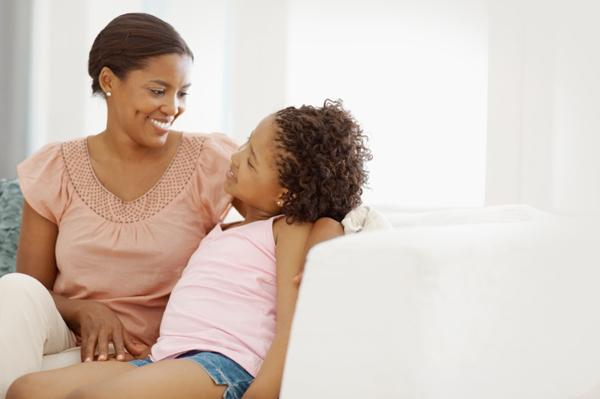Cope With StressMakeover your child's reaction to stress -- the benefits will last a lifetime!

Many, if not most of our children's problems come from their inability to deal with stress in a healthy way. But a child is unlikely to know when he or she is overstressed and it's up to the parents to watch for tell-tale signs which may include: difficulties with sleep, health, mood and learning.
Physical symptoms of stress or anxiety in children may include: recurring headaches, stomach pain and nausea, sleep disturbances, nightmares, bedwetting, decreased appetite and stuttering.
Emotional symptoms of stress or anxiety in children may include: moodiness, difficulty with concentration (spaciness), scary thoughts, a tendency to worry a lot, low self-esteem, restlessness, clinging, aggression, stubbornness, not wanting to participate in family or school activities, being easily upset: crying, whining or excessive anger.
If parents suspect that their child is over-stressed or anxious, they would be wise to simplify their child's life by cutting back on extracurricular activities and creating a home environment that is a sanctuary from the outside world. Each child is unique and even in the same family the number of activities that could be overwhelming for one child, might be quite comfortable for another.
However, it's never possible to eliminate stress completely and we cannot (and should not) protect our children from every difficult experience. We can though, help our children to recognize and face their anxious feelings and react to them in a healthy way.
Ways to help kids de-stress
Teach them to relax
Practice the 3 R's: teach kids to rest their bodies, relax their minds and refresh their spirits. Take a few minutes each day to practice self-soothing relaxation techniques such as progressive relaxation, attending to the breath, and visualization.Anticipate problems that are likely to occur and give your children a chance use their self-calming skills. Have a cue that quickly and privately signals a child to use his relaxation skills to become calm or to focus. It could be a word, or a physical cue.Teach them to be active
Try to ensure that your child has at least thirty minutes of moderate-intensity exercise each day.Be a role model for an active lifestyle.Find fun, outdoor activities that you can do together as a family.Do slow sustained stretches in the evening before bed.Teach them to turn it off
Limit television and video viewing time, as well as time spent playing video or computer games.Monitor TV shows, avoiding violent shows, those that are fast paced, and material that is inappropriate for your child's age and level of maturity.Turn all electronic equipment off at least an hour before bed.
没有评论:
发表评论